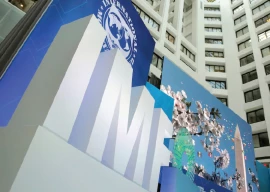
Cutting tax rates in the highest income tax brackets has the most positive impact on tax revenues and the economic growth. The important point is to recognise that people don’t work to pay taxes; they work to earn what they can after tax.
It is the after-tax rate of return on work, after all, that is the incentive that propels output and employment growth.
Given the data on tax rates and tax revenues from the highest income earners, there is no way anyone can take for granted that higher tax rates mean higher revenues. The highest tax bracket income earners when compared with those people in lower tax brackets are far more capable of avoiding and evading taxes.
Rich people are highly incentivised to keep their money. They are smart and they have money – they can hire lawyers, they can hire accountants, they can hire members of the National Assembly, senators and bureaucrats.
They are the people who want a favour from the government. Rich people can buy influence. They don’t only have the means to buy influence, but they also have the ways of doing it. This fact is universal and Pakistan is no exception.
Money is a universal language, but it speaks at different volumes. Rich people can get around taxes. If the government taxes rich people too much, they will flee the jurisdiction for favourable pastures and not pay any taxes.
The optimal tax system is one where taxpayers recognise their obligations to pay taxes and believe the tax system is fair and equitable. Then rich people will pay taxes willingly.
Pakistan’s tax agenda should be to stop high-income earners from not paying their fair share of income taxes. Given that they hold the majority of the nation’s wealth, they contribute disproportionately in income taxes to the national exchequer.
What’s missing in Pakistan is a simple, straightforward, broad-based, flat rate and predictable tax system. A flat tax system should be with no exemptions, no exclusions, no deductions and no credits.
A flat income tax means that all taxpayers, regardless of their income level, pay the same percentage of their income in taxes. It is fair and creates incentive for better compliance and more tax revenues.
For example, say the tax code has a flat tax rate of 10%. A taxpayer earning Rs9,000,000 would pay 10% of the income in taxes (Rs900,000), while a taxpayer earning Rs90,000,000 would also pay 10% of the income (Rs9,000,000). So, while the tax percentage stays the same across all income levels, your specific income determines how much you owe in taxes.
The advantage of flat income tax over complex progressive or graduated rate tax systems is that it is straightforward and takes the same proportion of income from each taxpayer. The simplicity of this model, offering clarity and ease of administration, shouldn’t fool you. It will have massive beneficial consequences.
In a progressive tax system, the tax rate increases as income levels rise. Higher-income individuals pay a higher percentage of their income in taxes when compared to those with lower incomes.
Unreasonable high progressive tax rates lead to quixotic tax enforcement, corrupt implementation of rules and regulations, counter-productive behaviour of individuals resorting to avoiding, evading and misrepresenting their true income.
The rich are particularly sensitive to high income brackets. The elasticity of supply of taxable income is the greatest in the highest income brackets. Tax rate cuts in the highest income tax brackets have the most positive tax revenue and growth impacts.
The government should incentivise high-net-worth individuals by being a protector, a creator and a friend by bringing them gradually in the tax fold. It will also diminish the “trust deficit” that exists between the high-income earners and the tax collector.
The rich, in return, should recognise their obligation to pay taxes and believe that the tax system is fair and equitable. They should set an example by marketing themselves as patriots who care for all the citizens and want to share a common prosperity for all Pakistanis.
The writer is a philanthropist and an economist based in Belgium
Published in The Express Tribune, June 3rd, 2024.
Like Business on Facebook, follow @TribuneBiz on Twitter to stay informed and join in the conversation.

1725354252-0/Untitled-design-(5)1725354252-0-405x300.webp)
1732099866-0/adele-(3)1732099866-0-165x106.webp)




1732084432-0/Untitled-design-(63)1732084432-0-270x192.webp)






1715142871-0/imfsalary-(1)1715142871-0-270x192.webp)






COMMENTS (1)
Comments are moderated and generally will be posted if they are on-topic and not abusive.
For more information, please see our Comments FAQ